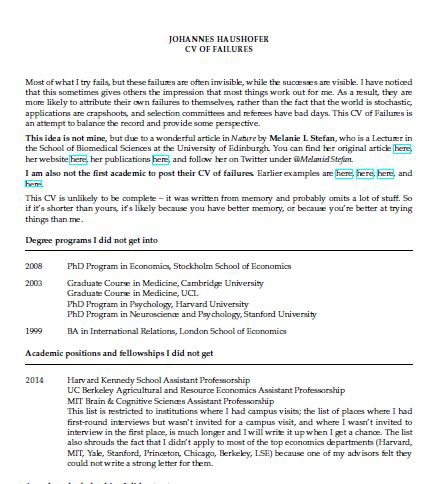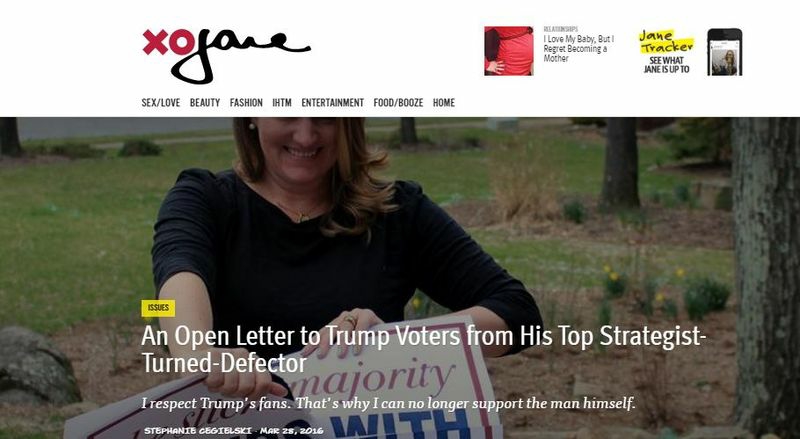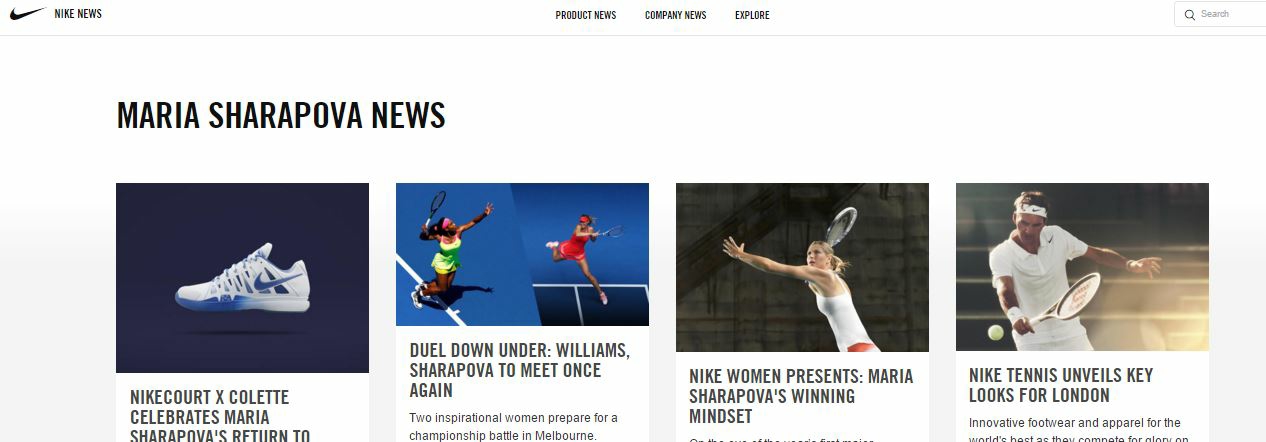Conversational Customer Service Wins Big Points
 When Skyscanner travel app suggested a 47-year itinerary for a customer, he asked what he could do during the layover. Jen, the customer service rep didn't miss a beat: she's quick and fun, and includes her promise in the P.S.
When Skyscanner travel app suggested a 47-year itinerary for a customer, he asked what he could do during the layover. Jen, the customer service rep didn't miss a beat: she's quick and fun, and includes her promise in the P.S.
The post went viral on Facebook, with people commenting on her spontaneity and lack of script. Customers are getting tired of the template response. The Houston Chronicle wrote, "We aren't sure who Jen is, but she totally just owned the Internet and we all loved it."
Social media responses have been getting friendlier. Perhaps companies (or their social media reps) are taking more risks. Sure, a negative post can cause all sorts of trouble, but this example and others prove that a positive, personal style by a human being can garner a lot of attention.
Discussion Starters:
- Look at recent social posts by your favorite company. Analyze the tone and approach. Have you noticed a change over time?
- Jen's strategy may not work for everyone. What are some risks of her casual style?
Sponsorships Getting Less Clear
 The Federal Trade Commission has guidelines for celebrities and bloggers to reveal their sponsorship ties, but they are not consistently followed, and some say the guidelines could be clearer. Companies shell out thousands of dollars for people with large numbers of followers to mention their brands on social media. But what's the difference between testimony and an ad?
The Federal Trade Commission has guidelines for celebrities and bloggers to reveal their sponsorship ties, but they are not consistently followed, and some say the guidelines could be clearer. Companies shell out thousands of dollars for people with large numbers of followers to mention their brands on social media. But what's the difference between testimony and an ad?
Mary K. Engle, the FTC's associate director for advertising practices told The New York Times that, although an endorsement has to be clear, they are not "prescriptive" about what's included in a social mention. The FTC guidelines suggest starting a post with something like "#Ad." According to the Times, "For example, simply saying 'thank you' to a brand or adding '#sp' or '#spon' probably isn't clear enough, while saying a brand is a 'partner' probably is," Engle said.
The organization Truth in Advertising wrote a letter to the Kardashian/Jenner family about recent posts they consider to be deceptive marketing. On her Instagram account, Kylie Jenner displays Fit Tea but fails to mention that this is a paid endorsement.
Discussion Starters:
- Should the FTC create more specific guidelines for what to include in social media posts? Or should celebrities know better?
- What's the value of disclosing that a celebrity is compensated by a brand? How, if it all, would a clearer marking affect your decision to buy a product?
Twitter's New Quality Filter
 Twitter is still trying to make the site a kinder place, with fewer trolls and less abuse. Twitter's user base has been declining, and several celebrities have signed off permanently. The company, led by Jack Dorsey, has responded to complaints: "We are going to continue our work on making Twitter a safer place."
Twitter is still trying to make the site a kinder place, with fewer trolls and less abuse. Twitter's user base has been declining, and several celebrities have signed off permanently. The company, led by Jack Dorsey, has responded to complaints: "We are going to continue our work on making Twitter a safer place."
The latest attempt is a "quality filter," which Twitter explains on its blog:
"Turning it on filters lower-quality content, like duplicate Tweets or content that appears to be automated, from your notifications and other parts of your Twitter experience. It does not filter content from people you follow or accounts you've recently interacted with – and depending on your preferences, you can turn it on or off in your notifications settings."
Twitter frames the new features as ways to "Control Your Experience on Twitter." In addition to the filter, users can limit their notifications, for example, from only people they follow.
Discussion Starters:
- How well is Twitter addressing criticism of bullying and harassment on the site? To what extent will these features address concerns?
- How well did Twitter present the change on its blog?
Plagiarism by Trump Institute
In addition to Trump University, which is taking heat for defrauding students, Trump Institute is now criticized for plagiarism and other issues.
Donald Trump promoted the $2,000 institute in an infomercial to wannabe real estate investors, but his claims fell short. He said instructors were handpicked, but at least one person connected with the program said she responded to a Craigslist ad. And the Institute's organizers were Irene and Mike Milin, who The New York Times describes as "a couple who had been marketing get-rich-quick courses since the 1980s." In April, The Daily Beast wrote a long piece about the Milin's history of "legal entanglements," including promising government loans that no one received.
The Times offered this comparison between Trump's materials and a 1995 book published by Success magazine.
This example is part of the 20 pages that were copied from the original book.
Discussion Starters:
- What is Trump's ethical responsibility to check the organizers' past? What responsibility does Trump Institute have to prospective students? Finally, what responsibilities do prospective students have? How could people avoid being hoodwinked into paying $2,000 for a program that doesn't deliver?
- What plagiarism guidelines would you like to share with Donald Trump?
At Last, Email Help?
Email "triage" tools can help us organize and our messages and, maybe, make better decisions about our communications. Hiri seems to focus on how people use email rather than on the tool itself. After all, we're the problem, not email.
The company makes big claims: "Communication is the soul of your company. Hiri is an email app that helps you save time, organise your day, and improve communication." We'll see, but the app does have some nifty features:
- A weekly score of your clarity, brevity, and tone. (I'm curious about how this is rated.)
- A forced wait time of 30 minutes, to avoid checking email too often. This could be frustrating, but checking too often causes stress, according to some studies.
- Distinguishing emails that require action from FYIs. Tasks are created from emails that require a response or action. This could be useful to diminish attention to all those emails on which we're copied.
Discussion Starters:
- How could these features help people organize their time and improve communication?
- Which email triage tools have you used in the past, and how have you found them helpful?
Outrage Over Stanford Sexual Assault Case
 A Stanford student's light sentence and father's appeal have outraged thousands. Brock Turner was a Stanford University student who sexually assaulted an unconscious woman behind a dumpster and fought the case in court. Turner received a six-month sentence in county jail and probation, although the maximum allowable was 14 years.
A Stanford student's light sentence and father's appeal have outraged thousands. Brock Turner was a Stanford University student who sexually assaulted an unconscious woman behind a dumpster and fought the case in court. Turner received a six-month sentence in county jail and probation, although the maximum allowable was 14 years.
The victim read a long letter to the judge, which has received almost 9 million views as of this writing. Her speech was impassioned and told her story: how she didn't know what happened to hear until she read it on the internet, how damaged she has been since the attack, and so on. It is an emotional, gripping speech that is difficult, but important to read.
Turner's father didn't help his son or the public outrage with his defensive letter, including, "That is a steep price to pay for 20 minutes of action out of his 20 plus years of life." ThinkProgress calls the letter "impossibly offensive," and most people agree.
A letter to Brock's father challenges him to recognize:
I need you to understand something, and I say this as a father who dearly loves my son as much as you must love yours:
Brock is not the victim here.
His victim is the victim.
She is the wounded one.
He is the damager.
In a statement, Stanford assured the public that the university did everything within its power.
Discussion Starters:
- Optional: Read the victim's letter. What makes her statement so compelling?
- What's your view of the father's response? The public response?
Email Clouds Our Judgement
 Hasn't email ruined enough vacations, marriages, and careers? Will it now steal a chance at the presidency? Hillary Clinton's server issue is a symptom of a deeper problem: email causes us to make bad decisions. Several times, she admitted that she wished she had acted differently. We have all made mistakes on email: sent it to the wrong person, replied all, or sent a half-drunk, angry message in the middle of the night.
Hasn't email ruined enough vacations, marriages, and careers? Will it now steal a chance at the presidency? Hillary Clinton's server issue is a symptom of a deeper problem: email causes us to make bad decisions. Several times, she admitted that she wished she had acted differently. We have all made mistakes on email: sent it to the wrong person, replied all, or sent a half-drunk, angry message in the middle of the night.
Millennials take blame for being constantly connected, but the Boomers are just as guilty, and we should know better. We know that email lives forever: on the sender's server, on the receiver's server, in print, posted on social media sites-in countless crevices. And double deleting doesn't save us from legal discovery software.
We assume a level of privacy because email has driven us to communicate quickly, often without any sense at all. We accept privacy policies without reading them, manage 122 emails a day, and "shoot" each other emails. As mobile use increases, email joins IM and texts, for which people expect an immediate response.
Advice and tools abound to reduce email dependence and volume. We should check email less often, use triage tools, and stop sending so damn many of them.
But these behavioral approaches miss the point: we love email. The immediacy and volume feed the micromanager's feelings of disconnection and lack of trust, making us dependent on email to function. We risk reputational and relational damage to maintain our addiction.
Clinton has experienced on a large scale what we have all come to realize about email: it owns us, and we are to blame.
Everyone needs a private cave like Fitzgerald Grant's on Scandal, and perhaps Clinton will get one. In the meantime, let's remember that no email message-nor any written communication that travels via the web or satellite-is truly private.
Too Much Social Media Sharing Affects Learning
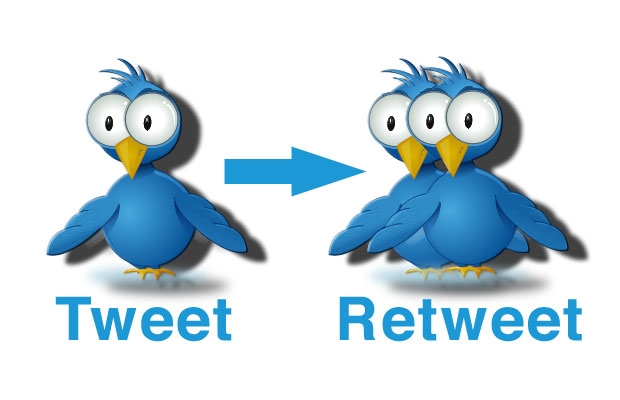 How much time do you spend each day giving feedback on social media posts? A study by researchers at Peking and Cornell Universities found that too much sharing on microblogging sites Twitter and Weibo causes cognitive issues.
How much time do you spend each day giving feedback on social media posts? A study by researchers at Peking and Cornell Universities found that too much sharing on microblogging sites Twitter and Weibo causes cognitive issues.
Here are highlights of the findings:
- Reposting online messages interferes with online information comprehension.
- Reposting further compromises performance in a subsequent unrelated learning task.
- Cognitive overload mediates the negative effect of reposting.
A premise of the study is how few original posts are on each site:
At Weibo, for instance, 4.8% users contribute more than 80% of the original posts, whereas the majority users primarily comment on or repost others' messages (Fu & Chau, 2013). Similarly, more than half of Twitter users never post a message, whereas the top 10% most active users contribute to over 90% of all content (Kaplan & Haenlein, 2011).
From studying student-participants, the authors concluded that reposting items "interfered with participants' information comprehension both online and offline." The authors warn that people attend to functionality for feedback rather than content, and that more cluttered interfaces (um, Facebook's six new Reactions?) isn't helping. They also say that valuable time spent on cognitive functions, such as reflecting on and integrating information, is impaired, reducing our ability to process and comprehend information.
Discussion Starters:
- Intuitively, does this study make sense to you? Why or why not?
- How do you think this research may translate to other social media platforms or online activities?
- An article by The Independent was titled, "Why resharing on social media could be making you more stupid." Is this an overstatement? Why or why not?
Joe Paterno Back in the News
 It's been a while since we heard about Penn State football coach Joe Paterno, who was in the news in 2011 because his assistant coach, Jerry Sandusky, had been sexually abusing young boys. Some questioned who knew and for how long, and recent court papers reveal Paterno's possible awareness since 1976.
It's been a while since we heard about Penn State football coach Joe Paterno, who was in the news in 2011 because his assistant coach, Jerry Sandusky, had been sexually abusing young boys. Some questioned who knew and for how long, and recent court papers reveal Paterno's possible awareness since 1976.
The current dispute is over whether Penn State or its insurance company should pay the $60 million in damages sought by 26 people who Sandusky abused. According to the insurance company, one sentence in the case revealed an important piece of evidence: "in 1976, a child allegedly reported to PSU's Head Coach Joseph Paterno that he (the child) was sexually molested by Sandusky." In addition, the evidence shows other cases reported in the 1980s.
Joe Paterno died of lung cancer in 2012, only two months after he was suspended from Penn State and within a year of the story breaking. His family is denying the evidence and calling for a full review of the facts.
Sandusky was sentenced to between 30 and 60 years, but he's filing for a new trial. Three university leaders-the former president, athletic director, and a senior vice president-still face charges for failing to report incidents.
Discussion Starters:
- This is based on just one sentence in the report-and it's the insurance company's perspective, obviously to avoid claims. What do you think?
- Research the case in 2011. The university took a while to suspend Joe Paterno. Why? And was the suspension the right decision?
Princeton Professor Creates "CV of Failures"
Princeton University Professor Johannes Haushofer published his "CV of Failures" on the school website, as he says, "to balance the record and provide some perspective":
Most of what I try fails, but these failures are often invisible, while the successes are visible. I have noticed that this sometimes gives others the impression that most things work out for me. As a result, they are more likely to attribute their own failures to themselves, rather than the fact that the world is stochastic, applications are crapshoots, and selection committees and referees have bad days.
This list includes programs he didn't get into, journals that rejected his articles, and research funding he didn't get.
The idea came from an article in Nature by Melanie I. Stefan, a lecturer in the School of Biomedical Sciences at the University of Edinburgh.
Haushofer tweeted, "Dear everyone writing your own CV of failures: just to point out I'm not aware of scientific evidence saying it does anything good for you." Still, his compilation is an expression of humility and reminds all of us that successes are built on failures. In my view, if we don't have failures, it's possible we're not reaching high enough.
Discussion Starters:
If you wrote a resume of failures, what would you include? Think about the companies that didn't hire you and the schools from which you were rejected.
How do your failures make you feel? Are you still feeling hurt by them, or have you moved past it?
SCOTUS Overturns Political Expression Case
 The Supreme Court ruled that the First Amendment protects a public employee who was demoted after management thought he had certain political interests. The Paterson, N.J., detective, Jeffrey Heffernan, was demoted to patrol officer after picking up a sign for his bedridden mother. The sign supported a mayoral candidate that the police chief opposed.
The Supreme Court ruled that the First Amendment protects a public employee who was demoted after management thought he had certain political interests. The Paterson, N.J., detective, Jeffrey Heffernan, was demoted to patrol officer after picking up a sign for his bedridden mother. The sign supported a mayoral candidate that the police chief opposed.
Lower courts ruled that the employees' demotion was acceptable because the act of carrying the sign was a perceived, rather than an actual, expression of political support. According to a Society for HR Management (SHRM) article, "So because Heffernan had not actually supported the candidate, the courts ruled that his right to free speech had not been violated."
But the Supreme Court overturned that decision, expanding the First Amendment protection to include perceived political expression. In its opinion, the court wrote, "When an employer demotes an employee out of a desire to prevent the employee from engaging in political activity that the First Amendment protects, the employee is entitled to challenge that unlawful action under the First Amendment and 42 U.S.C. § 1983-even if, as here, the employer makes a factual mistake about the employee's behavior."
SHRM explains, "Moreover, the constitutional harm-discouraging employees from engaging in protected speech-is the same whether the employer's action is based upon a factual mistake or if the employer was correct in its assumption, the court ruled."
Discussion Starters:
- This is a fairly complicated case. Explain it in your own words, including the implications for public employers.
- What if Heffernan worked for a private employer? Would he have had the same constitutional protection?
Mitsubishi Admits Deception
Just as Volkswagen is agreeing on ways to settle its emissions scandal, Japanese car manufacturer Mitsubishi has admitted to reporting false data for car emissions for the past 25 years. The company said about 625,000 of its mini-cars sold in Japan had been tested incorrectly; regulations changed in 1991 to include driving in urban areas, but Mitsubishi didn't adjust its data.
Mitsubishi Motors President Tetsuro Aikawa said, "We don't know the whole picture, and we are in the process of trying to determine that. I feel a great responsibility." Like Mary Barra, GM's CEO, Aikawa is a new president as the scandal is unfolding. Barra was GM's CEO for only a few months before the ignition issues came to light.
As of now, Mitsubishi's website "Press Room" doesn't include a statement about the news, but Aikawa has given a press conference in Japan. During the conference, Aikawa said, "We've discovered that improper tests were being used designed to show fuel consumption better than it actually was. It was also found that the fuel economy testing methods were not in line with Japanese regulations. We offer our profound apologies to customers and shareholders."
Cue deep bow...
Since the news broke, Mitsuibishi's stock has dropped about 50%.
Discussion Starters:
- So far, what are the similarities and differences between this situation and Volkswagen?
- What should Mitsuibishi publish on its website at this point?
- Should we expect more car models to be affected, as we saw with Volkswagen?
Suing Glassdoor for Bad Reviews
 In addition to poor customer reviews online, companies are feeling the pinch of negative employee comments, and they're taking action. Glassdoor has been targeted as the largest site for employee reviews about company management, interview processes, benefits, and pay. The site has been issued subpoenas for the names of people who posted views thought to be anonymous.
In addition to poor customer reviews online, companies are feeling the pinch of negative employee comments, and they're taking action. Glassdoor has been targeted as the largest site for employee reviews about company management, interview processes, benefits, and pay. The site has been issued subpoenas for the names of people who posted views thought to be anonymous.
A lawyer arguing the case against Glassdoor claims, "The right to anonymous speech also extends to the Internet and those constitutional principles [of free speech], but at the same time the Constitution does not protect defamation. It does not protect statements that are false or could give rise to other claims, for example, false light or tortious interference."
At issue is whether comments are true or "maliciously false." If true, comments may be protected, but if they are false, the author may not be protected. The National Labor Relations Board (NLBR) has a role, as I've written about before on BizComintheNews. An attorney James R. Redeker, at Duane Morris explains:
"If an employer tried to take action against an employee who it found published something in either social or public media anonymously-and/or published something that was false and misleading-the NLRB [National Labor Relations Board] general counsel and the board take the position that an employee is entitled to and protected in making statements with regard to the working conditions of their employer."
Glassdoor has refused hundreds of employers' requests for content to be removed and for identities to be revealed. The company argues, "Glassdoor is an anonymous community and we will vigorously fight on behalf of our users to protect their identities and right to free speech, provided they adhere to our community guidelines and terms of service."
Discussion Starters:
- What is an employee's responsibility when posting to sites such as Glassdoor?
- Do you agree with Glassdoor's resistance to reveal identities and remove posts? Why or why not?
- The attorney quoted in one of the articles said that companies can respond to comments online, but "...that's very unsatisfying. And sometimes it exacerbates the problem." What's your view? That's certainly how companies manage customer comments. How might this differ?
Illinois College Bans Yik Yak
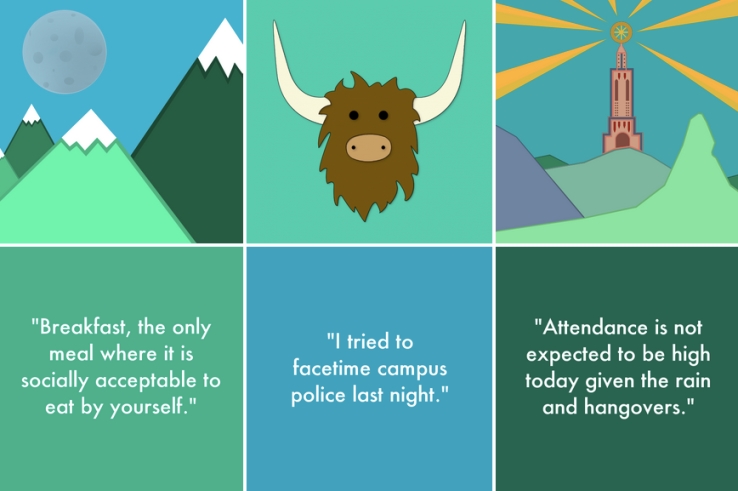 Illinois College President Barbara Farley made the tough call to block students from using the app Yik Yak. Posts are anonymous and can be seen by location. The app is notorious for attracting mean and sometimes racist comments, which has caused complaints by students and faculty. At Illinois College, the Student Senate, Black Student Union, and faculty members have been particularly vocal about Yik Yak problems.
Illinois College President Barbara Farley made the tough call to block students from using the app Yik Yak. Posts are anonymous and can be seen by location. The app is notorious for attracting mean and sometimes racist comments, which has caused complaints by students and faculty. At Illinois College, the Student Senate, Black Student Union, and faculty members have been particularly vocal about Yik Yak problems.
Students joke that the ban isn't really a ban at all because they can continue to access the app through their data plans. Although a handful of universities have banned the app, others refuse, partly for this reason. According to the vice president for student affairs at Duke University, "Since it can always be accessed via cell signal, no institution could truly eliminate it from their campus. For any institution to seek to silence it plays right into [Yik Yak's] hands...since what they seek is notoriety."
Several feminist and civil rights groups have urged the Department of Education to take action against Yik Yak. However, a Slate writer also argues that Yik Yak is helpful to students adjusting to college and struggling with mental illness. She says a university ban hurts some of the students they are trying to protect.
Discussion Starters:
- What's your opinion of Yik Yak: is it more helpful to students or harmful?
- How do you use the app?
- Should universities ban the app? What are the considerations and possible consequences?
WhatsApp Announces End-to-End Encryption
 Facebook-owned WhatsApp has announced end-to-end encryption, promising users more privacy. The news follows the recent debate between Apple and the FBI, which wanted to access iPhones of those involved in the San Bernardino terrorist shooting.
Facebook-owned WhatsApp has announced end-to-end encryption, promising users more privacy. The news follows the recent debate between Apple and the FBI, which wanted to access iPhones of those involved in the San Bernardino terrorist shooting.
In a blog post, WhatsApp co-founders describe the new technology. The post continues after the excerpt here: "The idea is simple: when you send a message, the only person who can read it is the person or group chat that you send that message to. No one can see inside that message. Not cybercriminals. Not hackers. Not oppressive regimes. Not even us. End-to-end encryption helps make communication via WhatsApp private – sort of like a face-to-face conversation." The notice links to a description of the security features.
PR Daily comments on the political implications of the technology and announcement:
As you can imagine, this will do nothing to foster good will in the already tenuous relationship between the United States government, which would seemingly prefer to be able to see everyone's data all the time, and tech companies in Silicon Valley, which are receiving increasing user demands for more privacy and security.
Discussion Starters:
- Assess the founders' blog post: the organization, word choice, and so on. What makes this a persuasive message? Where does it fall short?
- Although the company ensures security, the system isn't foolproof. What are some ways that people other than the recipients might see a message?
Former Trump Communications Director Quits and Reveals Strategy
So much for loyalty. A communication director for Trump's Make America Great Again Super PAC has quit the campaign and written an open letter about her experience. Most significant, Stephanie Cegielski says that Trump wanted to hit double digits and perhaps hit second place, but he never wanted to nor expected to be in the lead.
In her letter, Cegielski wrote, "His candidacy was a protest candidacy," and she describes her history:
"Almost a year ago, recruited for my public relations and public policy expertise, I sat in Trump Tower being told that the goal was to get The Donald to poll in double digits and come in second in delegate count. That was it."
She describes her initial excitement representing an alternative candidate but writes, "It wasn't long before every day I awoke to a buzzing phone and a shaking head because Trump had said something politically incorrect the night before. I have been around politics long enough to know that the other side will pounce on any and every opportunity to smear a candidate."
Cegielski, like many, was surprised at his continuing success. She eventually got disillusioned and now fears a possible win:
"What was once Trump's desire to rank second place to send a message to America and to increase his power as a businessman has nightmarishly morphed into a charade that is poised to do irreparable damage to this country if we do not stop this campaign in its tracks.
"I'll say it again: Trump never intended to be the candidate. But his pride is too out of control to stop him now."
Cegielski's credibility is at stake. The New York Times and The Wall Street Journal haven't taken up the story, and a Washington Post writer calls the article a successful "exercise in reputation management."
Discussion Starters:
- Read Cegielski's entire open letter. How do you assess her credibility? Consider The Washington Post perspective. Part of the writer's criticism is "She was literally the P.R. person for the Public Relations Society of America," and she "took a position teaching a class at New York University's School of Professional Studies" on Reputation Management.
- What, if any, loyalty does Cegielski have to Donald Trump and his campaign?
Sponsor Trouble for Maria Sharapova
Russian Tennis star Maria Sharapova is in a tough spot. She admitted that she failed a drug test and has taken "full responsibility" for it.
Sharapova said she was taking Meldonium, a medication for heart disease, which was added to the list of banned substances this year. She also said that the medication goes by another name, which she didn't know: "It is very important for you to understand that for 10 years this medicine was not on WADA's banned list, and I had been legally taking the medicine. But on January the first, the rules have changed." She also said, "I made a huge mistake. I let my fans down and I let the sport down."
But did she have to call the hotel's carpet "ugly"?
Although her admission and apology are clear, her sponsors don't want to wait for more news. Nike issued this statement: "We are saddened and surprised by the news about Maria Sharapova. We have decided to suspend our relationship with Maria while the investigation continues. We will continue to monitor the situation." Tag Heuer and Porsche also cancelled contracts, with the former explaining, "We had been in talks to extend our collaboration. In view of the current situation, the brand has decided not to renew the contract with Sharapova."
As of today, Nike's website page, "Maria Sharapova News" shows positive stories about the star and no mention of the decision.
Discussion Starters:
- How well is Sharapova handling the situation? Assess the news conference.
- Did Nike, Tag Heuer, and Porsche do the right thing? What pressures are on the sponsoring companies?
Criticism of Law Schools' Graduation Data
 A 2008 graduate of Thomas Jefferson School of Law is suing the institution for luring students to enroll by using false post-graduation data. Anna Alaburda's claim is one of 15 similar suits, although all but two have been dropped or dismissed.
A 2008 graduate of Thomas Jefferson School of Law is suing the institution for luring students to enroll by using false post-graduation data. Anna Alaburda's claim is one of 15 similar suits, although all but two have been dropped or dismissed.
Alaburda has $170,000 worth of student debt and has not found a full-time job in law since her graduation. Students' claims are that law schools include jobs such as part-time waitressing in their employment stats, inflating their placement rates. According to an article in The New York Times,
"Law schools labor to keep their employment data at the highest percentage level because it is a major factor in national law school rankings, which in turn give schools the credibility to charge six figures for a three-year legal education."
Since the charges, the American Bar Association has required law schools to give more information. On its website, you can download detailed statistics from all schools.
Overall, according to the National Association for Law Placement, rates have increased, but class size is shrinking, so it's tough to draw conclusions.
Discussion Starters:
- What is a law school's responsibility to share placement rates with prospective students? How does it balance honesty with recruiting targets?
- How would you make a decision about whether to attend law school-or a particular school? What data would be important for you to consider?
Whole Foods' Orange Controversy
 Whole Foods is selling pre-peeled, plastic-packaged oranges and has been criticized for it. The company touts sustainability measures, including, according to its mission statement, "reduced or reusable packaging, as well as encouraging shoppers to reduce waste through our 'nickel per bag' rebate program."
Whole Foods is selling pre-peeled, plastic-packaged oranges and has been criticized for it. The company touts sustainability measures, including, according to its mission statement, "reduced or reusable packaging, as well as encouraging shoppers to reduce waste through our 'nickel per bag' rebate program."
The tweet, at left, shows the company's decision, and a representative told Huffington Post, "a lot of our customers love the convenience of our cut produce offerings, but this was a simple case where a handful of stores experimented with a seasonal product spotlight that wasn't fully thought through. We're glad some customers pointed it out so we could take a closer look."
But people didn't like the decision to pull the oranges either. Some said they were useful for people with arthritis and other physical limitations.
Whole Foods is struggling because of lower-cost organic sellers, such as Costco. Last year, the company was criticized for selling asparagus spears in a bottle of water for $5.99. This product was also pulled.
Discussion Starters:
- What's your view of the pre-packaged orange? Is this a good product, does it contradict Whole Foods' mission, or both?
- Did Whole Foods act hastily in pulling the product? Consider the company's decision process.
Uber Pays $28M and Adjusts Safety Language
Uber has settled two lawsuits claiming the company misled consumers about safety. Charging a $2.30 fee, Uber promised to do background checks of its drivers, but the company failed to do the type of fingerprinting required for taxi drivers.
As part of the settlement, Uber will change some language in its promotions: the "Safe Ride Fee" will now be called a "Booking Fee."
In a statement, Uber reinforces its rationale for assuring passengers of safety but admits, "no means of transportation can ever be 100 percent safe. Accidents and incidents do happen."
Discussion Starters:
- How, if at all, will the language change and financial settlement affect passengers?
- How well does Uber explain the settlement? Of course, the company tries to spin the news positively. Does it succeed?











